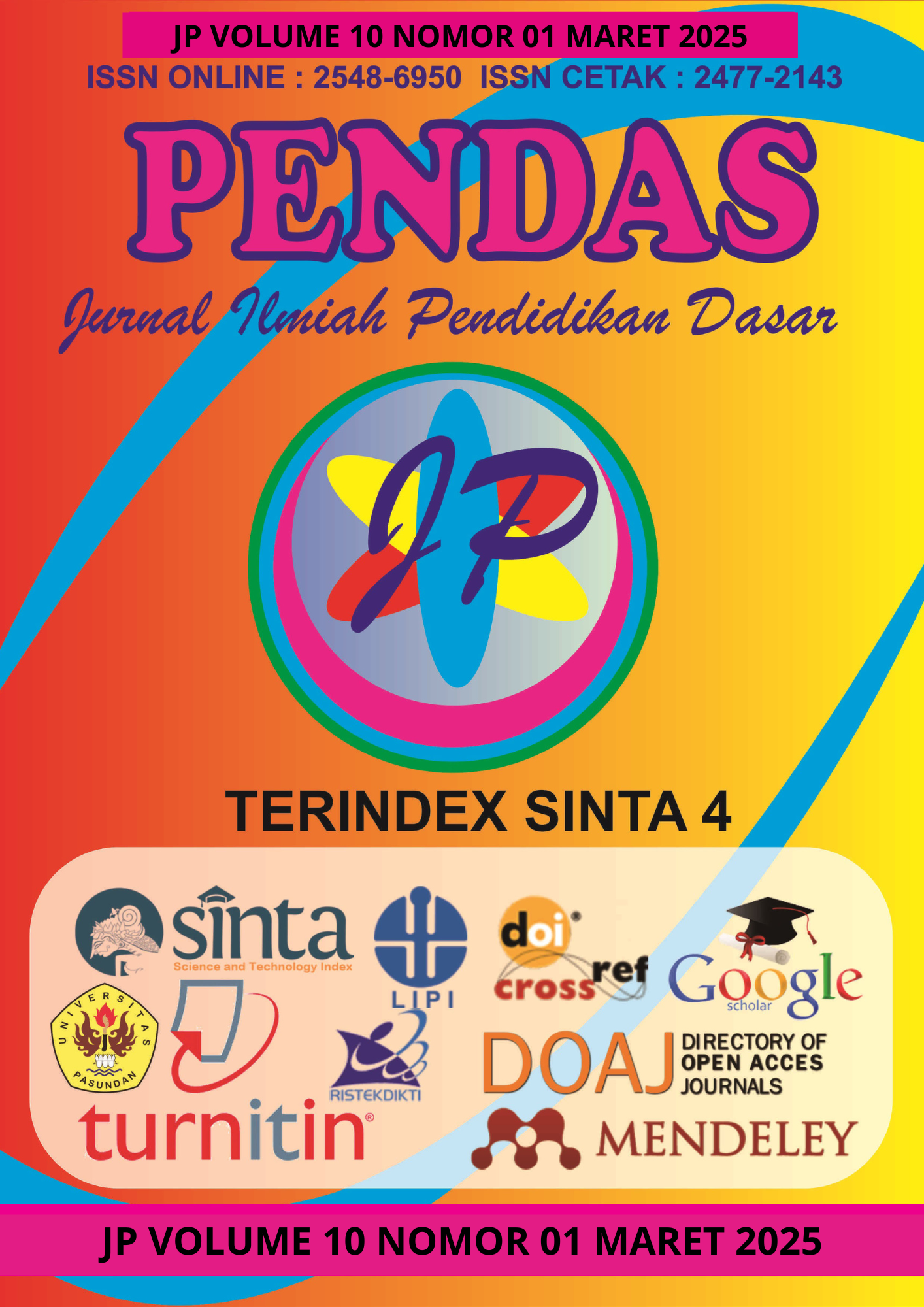ANALISIS MISKONSEPSI SISWA SEKOLAH DASAR PADA MATERI ILMU PENGETAHUAN ALAM
DOI:
https://doi.org/10.23969/jp.v10i01.21968Keywords:
science learning,misconception, elementary schoolAbstract
Understanding the idea of MISCONCEPTION in the context of teaching natural sciences (IPA) in elementary schools is the main goal of this article. Understanding the idea understanding strategies employed by Natural Science (IPA) instructors and the challenges faced during the Merdeka Belajar curriculum's implementation are the goals of this essay. This study employed a qualitative approach using a descriptive methodology. A case study was employed as the data gathering method, in which the researcher thoroughly explains and examines the issue until particular outcomes are achieved. Teachers, pupils, and the principal of primary schools are the subjects of this study. Books, journals, and scientific articles are examples of secondary data sources that are used in this article. Descriptive-analytical analysis, which incorporates critical analysis, critical interpretation, and conclusion drawing, was employed to examine the data. Teachers employ a variety of assessment techniques, according to the study's findings. They employ assignments, written exams, and oral exams to evaluate cognitive abilities. Journals, observations, and self-evaluations are used in the affective component.
Downloads
References
Anugerah. (n.d.). Miskonsepsi IPA di SD Miskonsepsi IPA di SD 1. http://adinnagrak.blogspot.com/2013/12/makalah-laporan-miskonsepsi-ipa
Darmastuti, M., & Desstya, A. (2024). Investigasi Miskonsepsi pada Materi Perkembangbiakan Tumbuhan Menggunakan Metode CRI (certainty of response index) di Sekolah Dasar. Jayapangus Press Cetta: Jurnal Ilmu Pendidikan, 7(1). https://jayapanguspress.penerbit.org/index.php/cetta
Gustia tahir. (n.d.). MUHAMMDIYAH (Gerakan Sosial Keagamaan dan Pendidikan).
Ifdaniyah, N., & Sukmawati, W. (2024). Analysis of Changes in Students’ Science Literacy Ability in Class V Elementary School Science Learning Using the RADEC Model. Jurnal Penelitian Pendidikan IPA, 10(2), 681–688. https://doi.org/10.29303/jppipa.v10i2.3952
Kusnadi, N. F., & Sukmawati, W. (2023). Analysis of Changes in the Level of Difficulty of Elementary School Students in Learning the RADEC Model on the Concept of Energy Transformation Using the Rasch Model. Jurnal Penelitian Pendidikan IPA, 9(SpecialIssue), 1121–1127. https://doi.org/10.29303/jppipa.v9ispecialissue.4036
Mariyadi, M., & WA, I. R. (2023). ANALISIS MISKONSEPSI PESERTA DIDIK KELAS VI SEKOLAH DASAR PADA PEMBELAJARAN IPA MATERI GAYA GRAVITASI. LENSA (Lentera Sains): Jurnal Pendidikan IPA, 13(1), 77–85. https://doi.org/10.24929/lensa.v13i1.225
Nadhif, N. H., & Utama, C. (2023). POTRET MISKONSEPSI SISWA KELAS IV SDN KEPANJENLOR 3 BLITAR PADA MATERI SIKLUS HIDUP HEWAN. Prima Magistra: Jurnal Ilmiah Kependidikan, 4(1), 7–16. https://doi.org/10.37478/jpm.v4i1.2297
Nataria Wahyuning & Arya Setya. (n.d.). PENGEMBANGAN MODUL BERBASISBUDAYA LOKAL UNTUK MENINGKATKAN LITERASI SAINS DAN MEREDUKSI MISKONSEPSI SAINS MAHASISWA CALON GURU SD.
Sukmawati, W., Lestari Handayani, S., & Yeni, Y. (2022). Is conceptual learning based on conceptual change text (CCT) effectively applied to pgsd students science class? Jurnal Inovasi Pendidikan IPA, 7(2), 171–181. https://doi.org/10.21831/jipi.v7i2.44034
Downloads
Published
Issue
Section
License
Copyright (c) 2025 Pendas : Jurnal Ilmiah Pendidikan Dasar

This work is licensed under a Creative Commons Attribution 4.0 International License.














































